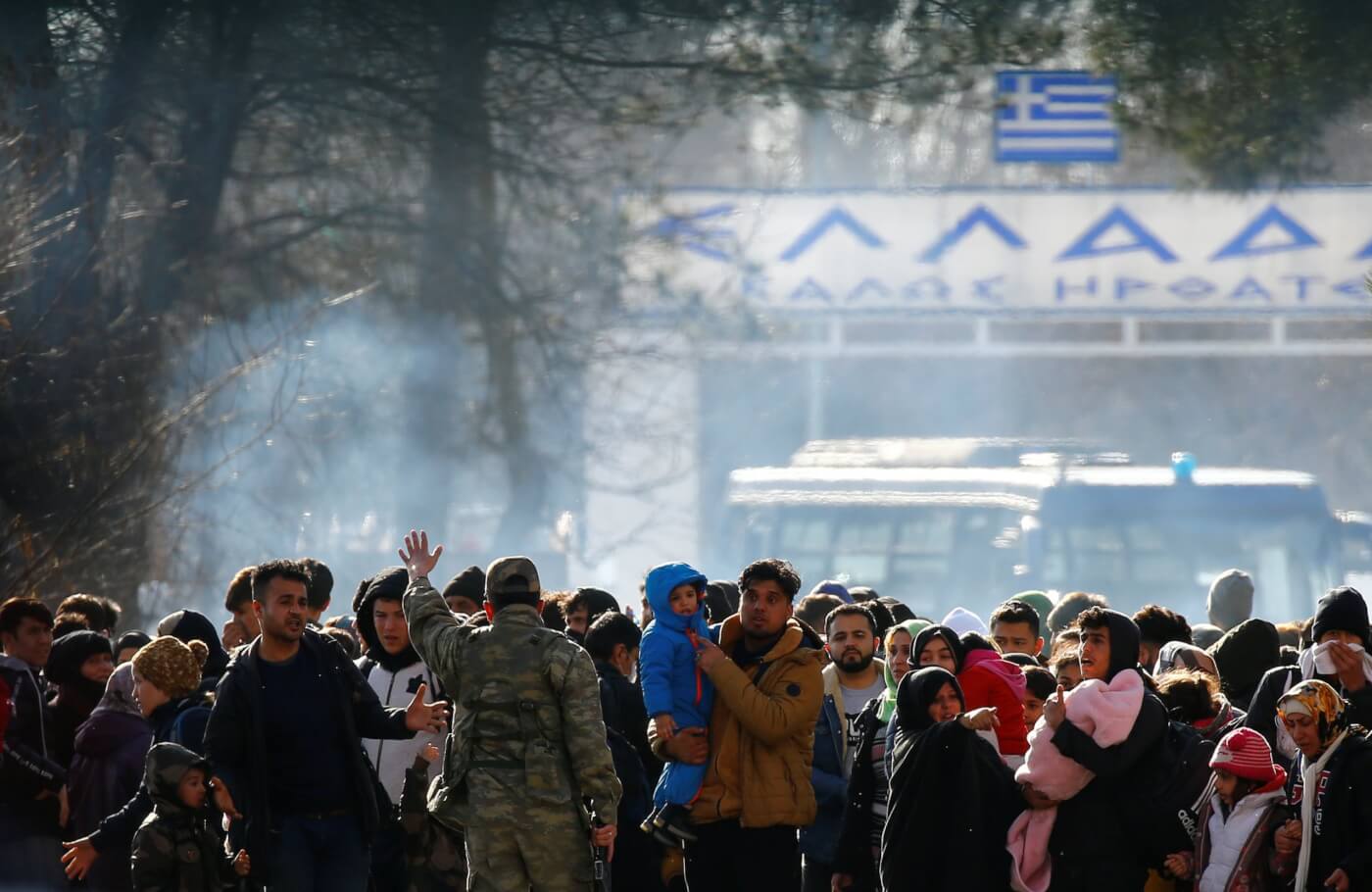A senior Turkish official has announced that the country will no longer stop refugees from reaching Europe. The announcement followed on from an emergency meeting held overnight (Thursday 27 February) as President Erdogan responded to the killing of 33 Turkish soldiers in air strikes orchestrated by the Syrian Government.
The attack brought the total number of Turkish security personnel killed in Idlib so far this month to 53.
The Turkish police, coast guard and border security officials were ordered to stand down overnight on Thursday.
Reuters report that a Turkish official, who requested anonymity, said:
“We have decided, effectively immediately, not to stop Syrian refugees from reaching Europe by land or sea…All refugees, including Syrians, are now welcome to cross into the European Union.”
In response to the news, hundreds of Syrian refugees have begun preparing to travel towards the country’s borders with Greece and Bulgaria.
The decision pulls Turkey away from a deal struck with the European Union in 2016, in which Turkey agreed to cut the number of migrants entering Europe. Unsure how long this window of opportunity will last, some of the 3.6 million Syrians currently living in Turkey have begun to move quickly.
Early on Friday 28 February, Turkish broadcaster Demirören showed footage of around 300 people, including women and children, walking on highways and through forested land in north-west Turkey towards the EU border. It reported that the group consisted of Syrians, Iranians, Iraqis, Pakistanis and Moroccans.
In Istanbul, the Syrian community began organising buses to take people to the border.
It has also been reported by Turkish media that migrants had begun to gather in the western Turkish coastal district of Ayvacık, in Çanakkale province, with intentions to travel by boat to Lesbos island in Greece. The NTV channel showed large groups walking through fields and said that refugees had attempted to cross the Kapıkule border, but had not been allowed through.
Turkey has long threatened reopening the migrant route from the Middle East which – during the peak of the crisis in 2015 – saw thousands of people die while attempts to cross the Mediterranean to reach Greece and Italy.
The European Union will be keen not to see history repeat itself, especially considering Greece is already nearing tipping point, with fresh protests popping up on the mainland and neighbouring island this week over the government’s planned migrant camps.
Greece has reportedly boosted border patrols according to a government source. An army source has said that near 300 people had been spotted on the Turkish side of the border in the north-eastern Evros region but that those numbers were “not out of the ordinary”.
Turkey’s actions appear to be a measured so to force the EU and NATO into supporting Ankara’s military operation in Idlib. The US has already condemned the Syrian action, and Nato said it would hold urgent talks on the crisis today (Friday 28 February, 2020).
The UN had said on Monday 24 February that the latest fighting was coming “dangerously close” to encampments of the displaced, and in doing so risked an imminent “bloodbath”.
Turkey’s communications director has accused Assad of “conducting ethnic cleansing” and attempting to drive Syrians out of Idlib.
He said:
“These people will try to escape to Turkey and Europe. Already hosting close to 4 million refugees, we do not have the capacity and resources to allow entry to another million,”
U.N. Secretary-General Antonio Guterres voiced “grave concern” about the escalation in northwest Syria and reports that Turkish soldiers had been killed, and repeated his call for an immediate ceasefire, a spokesman said.


